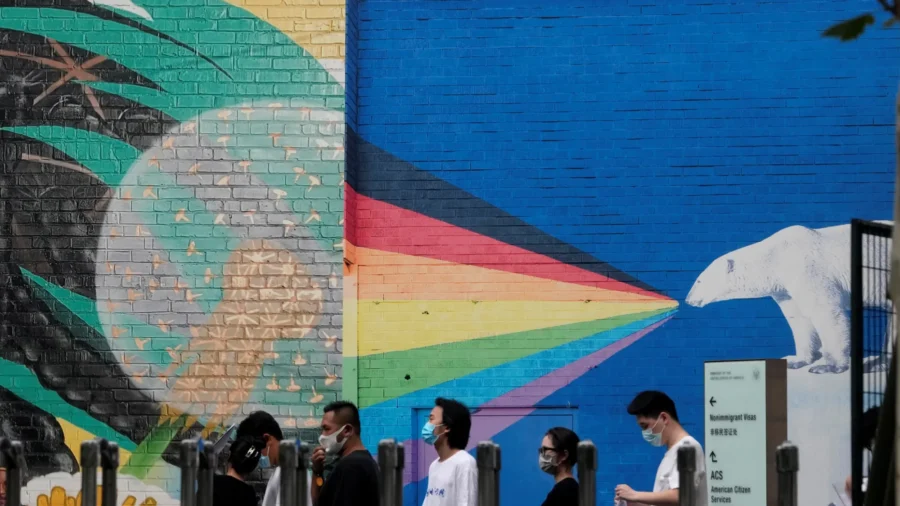The Chinese Communist Party (CCP) has advised its citizens to reconsider travel to the United States, citing economic tensions and concerns over domestic safety conditions, according to a statement from China’s Ministry of Culture and Tourism.
The advisory comes amid increasing trade friction between the two nations and heightened scrutiny of Chinese nationals in American universities.
This warning follows China’s April 9 decision to impose an 84 percent tariff on all U.S. imports, a direct response to increased tariffs announced by Washington. On April 11, Beijing announced that it would further increase tariffs on U.S. imports from 84 percent to 125 percent, in retaliation against the U.S. decision to hike duties on Chinese goods to a total of 145 percent. This marks a significant escalation in the ongoing trade conflict between the world’s two largest economies.
Separately, the CCP’s Ministry of Education has also issued an advisory concerning Chinese students in the United States, particularly in light of new legislation progressing through Ohio’s state legislature.
The proposed Senate Bill 1 includes provisions that call for stricter controls on foreign influence, especially within academic institutions.
The ministry urged students to carefully evaluate safety and academic risks when considering study opportunities in certain U.S. states, noting that the Ohio bill includes negative provisions related to China and imposes restrictions on educational exchange and cooperation between Chinese and U.S. higher education institutions.
Following the Ohio House’s approval of the bill on foreign influence, Republican lawmakers stated that the legislation aims to “safeguard Ohio’s institutions from interference by the People’s Republic of China” by enforcing foreign influence restrictions.
Federal legislators have also increasingly scrutinized the presence of Chinese nationals in American universities, citing national security concerns and requesting schools to provide information on students.
U.S. House committee on the Chinese Communist Party chair John Moolenaar recently sent formal inquiries to six universities, including Stanford, Carnegie Mellon, and the University of Maryland, College Park, seeking detailed data on their Chinese student populations, funding sources, and research involvement.
“The intelligence community has warned that American campuses are ‘soft targets’ for espionage and intellectual property theft,” the letter said.
As NTD reported earlier, some lawmakers in Congress are pushing for stricter measures regarding Chinese nationals entering the country on student visas. In March, Rep. Riley Moore (R-W.Va.) introduced the new Stop Chinese Communist Prying by Vindicating Intellectual Safeguards in Academia Act, or the Stop CCP VISAs Act, which aims to ban Chinese nationals from getting student visas in the United States.
Moore has been vocal about what he perceives as the Chinese Communist Party’s (CCP) exploitation of the American visa program for espionage and intellectual property theft.
“Every year, we allow nearly 300,000 Chinese nationals to come to the U.S. on student visas. We’ve literally invited the CCP to spy on our military, steal our intellectual property, and threaten national security,” Moore said. He referenced an incident last year where the FBI charged five Chinese nationals on student visas for allegedly photographing joint U.S.-Taiwan live-fire military exercises.
“It’s time we turn off the spigot and immediately ban all student visas going to Chinese nationals,” Moore stated.
These actions and the Chinese advisories underscore growing friction in diplomatic and educational exchanges between the two countries, despite past efforts to improve collaboration. In 2023, then-President Joe Biden and Chinese regime leader Xi Jinping had sought to enhance academic ties.

